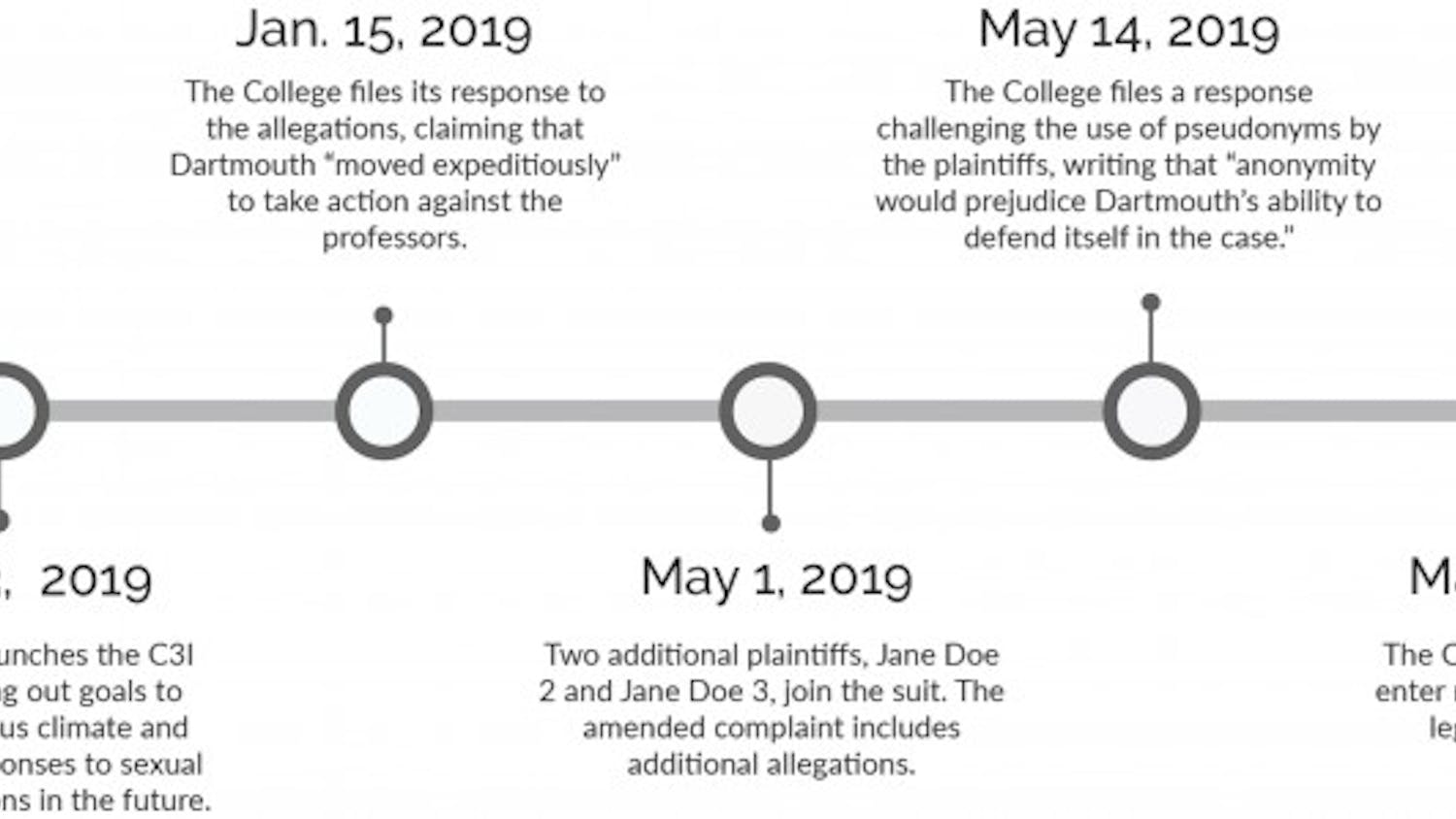In early 2015, Weymouth, MA residents organized for the first time in opposition to a proposed natural gas compressor built in town by Canadian energy transportation company Enbridge. Since the start of the five-year saga between Weymouth town members and Enbridge, the issue has made its way to the Dartmouth community through the College’s connection to Irving Oil.
In a open letter posted by community organization Fore River Residents Against The Compressor Station, the group calls on Dartmouth’s faculty, staff, students, the Board of Trustees, administrators and the Arthur L. Irving Institute for Energy and Society to “pressure Irving Oil to cancel its contract with Enbridge.” Written after legal and regulatory efforts to stop the project failed, the activists turn to the College’s connection with Irving. The group specifically refers to Irving Oil’s $80-million donation to the College to create the Irving Institute, cautioning against “unnecessary reputational damage” by its association with Enbridge.
Enbridge, an energy company that moves nearly two-thirds of Canada’s crude oil exports to the United States and 20 percent of the natural gas burned in the U.S., began considering the compressor as a part of its Atlantic Bridge Project that links two major pipelines in the U.S. and Canada. The $450-million compression station in Weymouth would allow the flow of natural gas to regain pressure as it continues flowing through the pipeline.
The activists’ letter alleges that the compression station “would enable carbon emissions greater than all the motor vehicles in New Hampshire and Vermont combined,” and potentially endanger the community with an explosion. The letter also notes that because Enbridge and Irving Oil are the only backers of project, the Irving’s withdrawal from the project could play a major role in stopping the project.
“Irving has every reason — financial, ethical, contractual, reputational — to [cancel its contract] regarding an expensive, financially shaky partnership that faces [unrelenting] and [broad opposition] committed to using all necessary measures to stop the Compressor,” the letter states.
The letter comes after local activists failed to successfully prevent the construction of the compression station despite a lawsuit, efforts during regulatory comment periods and grassroots organizing.
Irving Institute director Elizabeth Wilson said the Institute will not take a stance on the issue.
“We are an institute at Dartmouth that does not take political positions,” Wilson said. “We are not in any position to have any influence on this topic at all … We’re focused on engaging our efforts on places where we think we have the most impact.”
Wilson responded to the letter by noting that both those at the Irving Institute and the activists opposing the project both share similar long-term goals.
“We all share the same end goal of having a sustainable, affordable, and reliable energy system,” she said. “There may be very different pathways that people we engage with believe in.”
Wilson also touched on the importance of receiving money from Irving, describing it as a legacy system to invest in the future.
“I think it’s incredible that the legacy energy system is willing to give us, at Dartmouth, the resources to invest and create the energy systems of the future,” Wilson said. She described the “legacy system” investing in Dartmouth as “a gift.”
Boston University earth and environment professor Nathan Phillips, an advocate against the compressor, was a contributor in the open letter to the College. He is currently on hunger strike to protest the compression station.
Phillips said he understands that Irving Oil is not directly affiliated with the Irving Institute. However, he drew attention to the fact that the energy company’s CEO, Sarah Irving ’10 Tu’14 and Sandra Irving serve as part of the Institute’s advisory board.
“It’s not like there are super separate things — They’re very closely connected,” Philips said. “At my university, I would not be comfortable, personally, being part of a faculty that’s funded by a fossil fuel company.”
Alice Arena, the president and executive director of FRRACS, has family near the proposed site in Weymouth and also expressed skepticism.
“It’s really difficult to say they’re going to bite the hand that feeds them,” Arena said.
Arena also characterized the Irving Institute’s renewable energy research and programs as “greenwashing.”
Candice MacLean, a spokesperson for Irving Oil, declined to share details about a commercial agreement. She wrote in an email statement that the company is "always exploring opportunities that allow us to best meet the needs of our customers."
According to Phillips, many members of the Dartmouth community are unaware of these connections. He hopes the letter will bring attention to the issue and that “anyone affiliated with the Irving Institute or even Dartmouth in general would ask that Irving do the right thing and cancel the contract.”
“It’s not a big ask that would generate enormous goodwill,” he said.
Both Phillips and Arena pointed out the large-scale impact of the project.
Phillips claimed that the project is part of “a massive build out that has New England wide and even international implications” by sustaining the natural gas industry in that region in the long term. He expanded on his concerns that the compression could lock the gas industry in for the next 40 to 50 years.
Arena claimed that Dartmouth’s image is tarnished regarding its association with Irving Oil.
“[Irving] gains the legitimacy of being associated with Dartmouth … But at the same time Irving is killing my neighborhood,” she said.
Correction appended (Feb. 4, 2020): This article originally stated that a spokesperson for Irving Oil declined to comment. The spokesperson did provide a brief statement to The Dartmouth but declined to comment on the specifics of the Weymouth case. The article has been updated to include her statement.



